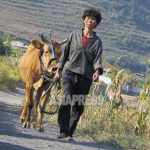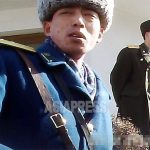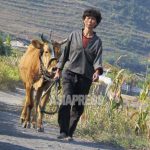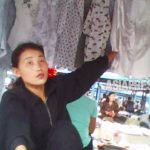The "wanderers" in the document refer to vagrants, or homeless people, known in North Korean dialect as “kochebi.” We have received reports from our reporting partners in various parts of the country that the number of such people has been increasing since the middle of April, when Kim Jong-un strengthened measures to prevent the spread of the coronavirus.
According to our reporting partners, vulnerable groups in urban areas who have lost their cash income are selling their houses as a last resort to pay off their debts and have started living as "kochebi." There are also many cases of children who are wandering on their own because their parents can no longer look after them, and the number of children and elderly people begging in the market has also increased significantly since Spring.
◆Deaths are also occurring.
There are also many reports of death due to starvation. In late December, a reporting partner from the north part of Musan, in North Hamgyong Province, reported the following,
“On the morning of December 20th, 2 children were found dead hugging one another in an embraced position in the Chuchow Workers’ Area. People are saying that they must have frozen to death because of the cold weather. More and more housewives are leaving their homes since there’s nothing more they can do, and abandoned children are wandering around.”
The internal documents we obtained include a request to send all "non-resident people" who are living outside the area they originally come from back to their original areas. This suggests that the number of people who are living outside the system is increasing due to the recent economic deterioration.
※ASIAPRESS contacts its reporting partners in North Korea through smuggled Chinese mobile phones.
- “Oppa” is Outlawed: Top-Secret Documents Detail Kim Jong-un’s Direct Orders to Eliminate S. Korean Cultural Influence (2021-01-04)
- <Inside N. Korea> Missing Medicine: Country on Verge of "Medical System Collapse" due to Rapid Depletion and Blocked Imports of Drugs (2020-12-23)
- <Inside N. Korea> “No Soap but Many Broken-Down Cars”: The Reality of Life Under the Paralyzed COVID-19 Economy (2020-12-22)
- Residents of N. Korea's Embattled Cities Face Starvation Amid Continuing Coronavirus Blockade (2020-12-16)
- Strict Coronavirus Prevention Measures Result in 99% Year-on-year Drop in Trade for October (2020-12-12)
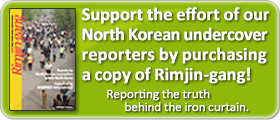 Editor’s notes on North Korean reporters
Editor’s notes on North Korean reporters
ALL REPORTS >>>
ARCHIVE(pdf) >>
DPRK MAP >>
